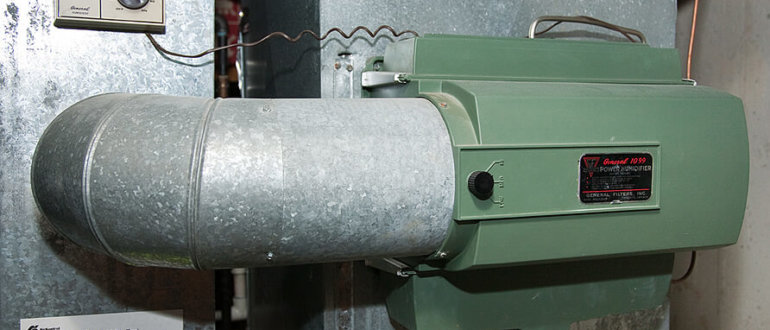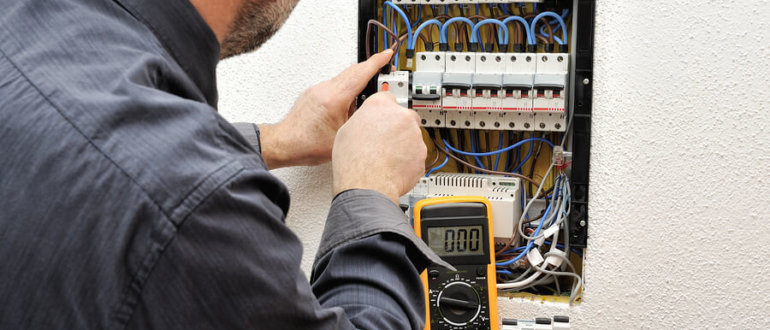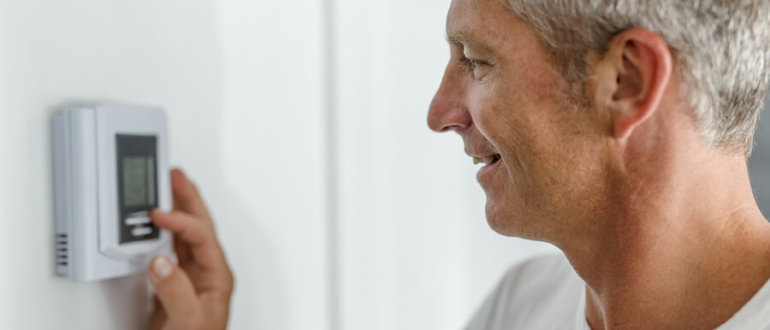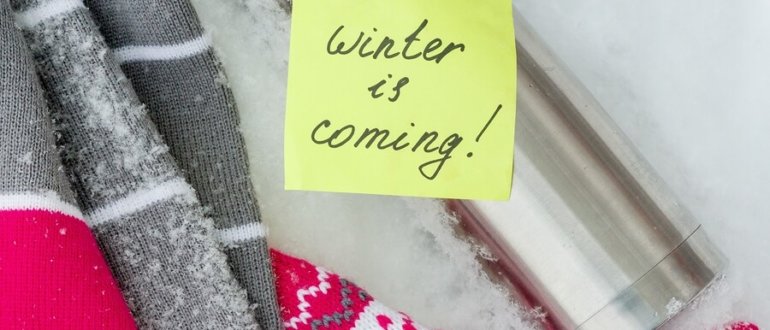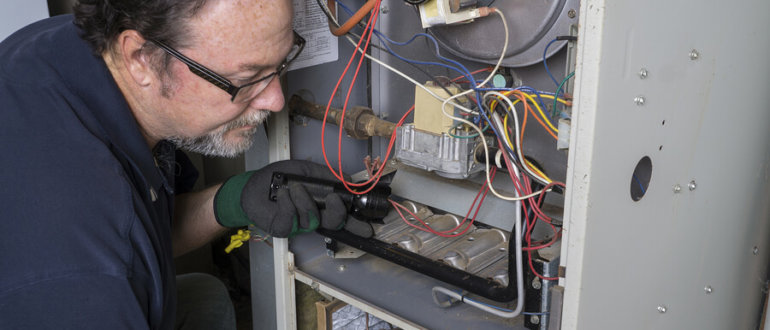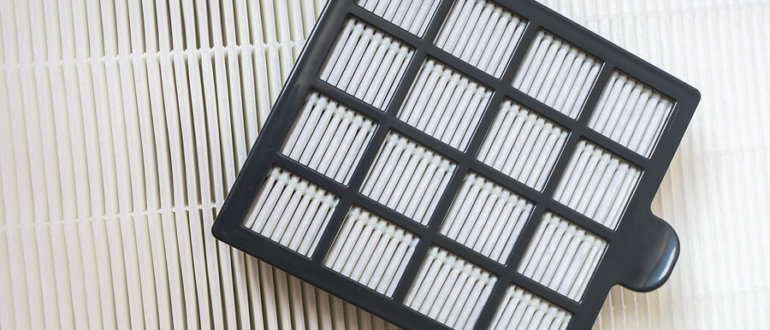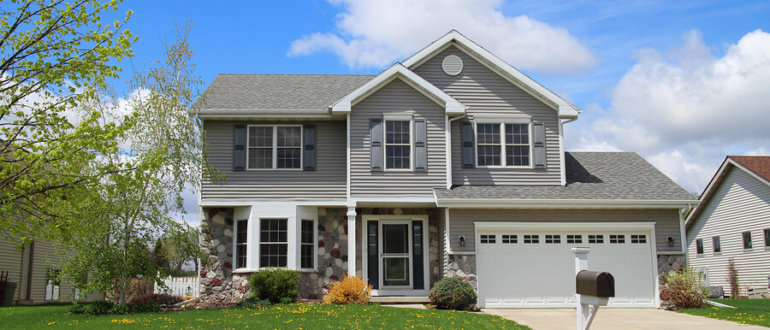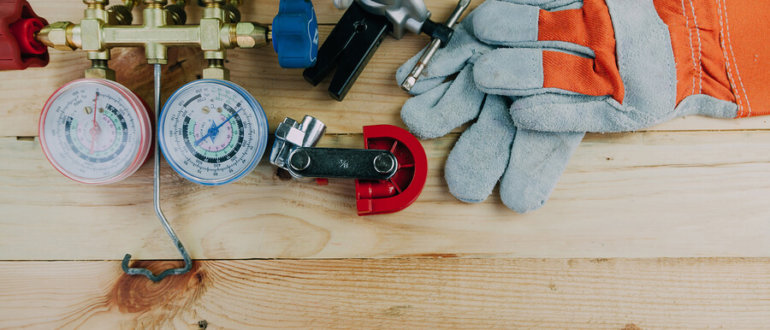Why You Should Consider a Central Humidifier this Winter
You are glad for the cooler air after a long, hot, humid summer. With the cold temperatures comes dryer air. So why would you consider bringing more humidity into your home in the winter?
Next to the reading on the thermometer, humidity is the next biggest factor in the comfort level of your home. Philadelphia HVAC contractors suggest that central humidifiers are a perfect way of controlling important humidity levels inside your home. These can help increase comfort levels but also have other important benefits.
Although ultra humid days can sap your energy in the summer, what you are going for is a balanced environment. During the winter, the cold freezes moisture out of the air and lowers the humidity of a living space substantially. Your furnace further contributes to lowering the humidity level inside your home. Having a central humidifier installed by a Philadelphia HVAC contractor has many benefits for homeowners during the winter months.
Comfort
A central humidifier can increase the moisture level inside the home for a more balanced comfort level. Although high humidity in the summer makes the air feel much hotter than it is, the opposite is true for cold, dry air. Dryer air makes the air feel colder and has the effect of soaking moisture from the body. Having the benefit of higher moisture levels inside your home makes your home more comfortable as well as alleviating cold weather conditions such as chapped and dry lips and skin, dry eyes, and chronic nosebleeds.
Reduced Deterioration of Wood Items or Furnishings
Dry air can deteriorate wood interior finishes, furnishings, or any possessions you may own such as musical instruments. Having a central humidifier can help protect these items from splitting and warping.
Energy Savings
Having a more humid environment has the effect of making you feel warmer. Consequently, you may not feel compelled to turn the thermostat up as often. Your humidified air will help save you money on your electric bills. According to the EPA, a central humidifier has the ability of saving you up to 4 percent on your energy bills. And controlling humidity may help your home qualify for the National Association of Home Builders’ Green-Built Certification Program.
A Healthier Environment
Dry air can not only cause skin irritations and dry up sinuses, but it also can make it easier to pass viruses and germs between people. Respiratory illnesses, colds, and flus spread more quickly in drier environments.
Central humidifiers are installed directly into your current heating and cooling system and work by bringing water vapor through the duct system with your heated air. There are even systems that are designed for homes that have radiant or baseboard heating. You can adjust your humidity levels the same way you control your thermostat in order to get a balanced amount of humidity in your home.
A central humidifier is a simple addition to most HVAC systems. Call the Philadelphia HVAC contractors at Affordable Fixes LLC to discuss the benefits of having a central humidifier installed in your home.
What to Do When Your Furnace Trips a Breaker
It’s already November and we are anticipating the upcoming holidays. Cooler air is moving in and you turn your furnace on for the first time. Oops! Your breaker trips. What does that mean and what can you do about it?
Unfortunately, when your HVAC system is tripping breakers, it may be more than just a minor inconvenience. The circuit breakers in your home are built with a safety precaution system. Circuit breakers are designed to trip when they detect a fault in the system. These have the potential to create hazards and cause fires as well as damage equipment. If your furnace is tripping a breaker, there may be a serious safety risk that needs to be addressed.
Reset the breaker. If this works and you have no further issues, the problem may have been something like a temporary power surge or spike in the grid. Keep an eye on it. But if your furnace continues to trip the breaker, the source needs to be located and repaired.
The most common problems with a furnace that continues to trip the breaker are:
- An overloaded furnace
- An overloaded shared circuit
- A short circuit or ground fault inside the furnace
- A problem with the circuit breaker itself
An Overloaded Furnace
An overloaded furnace can be caused by numerous things. These can be
- Dirty air filters
- Blocked air vents
- Restricted ductwork
- Malfunctioning parts inside the furnace
Some of these things can be fixed by the homeowner but some require the skill of a Philadelphia furnace repair professional.
An Overloaded Shared Circuit
Electricity hogs such as your HVAC system should be on their own circuits. But many older homes were not constructed this way and your furnace may share a circuit with other appliances, lights or outlets. This can overload these circuits. Have a Philadelphia HVAC contractor either move the other shared items off that circuit or move the furnace to its own circuit.
A Short Circuit or Ground Fault Inside the Furnace
Short circuits can happen when a hot wire comes into contact with a neutral one. A ground fault can occur when a hot wire touches a ground wire or another grounded part in the furnace. Both of these create a surge of electric current that the furnace is pulling. This type of issue should be left to a Philadelphia HVAC repair professional.
Circuit Breaker Issues
Sometimes the problem isn’t with the furnace but with the breaker or panel itself. This requires the expertise of an electrician.
Breakers that continue to trip create a fire risk and potential damage to your electrical system. When you are experiencing tripped breakers when you turn on your furnace, you want an experienced professional.
The repair experts at Affordable Fixes LLC are here to help. For over 30 years, we have been the Philadelphia HVAC professionals more residents have trusted for their plumbing and HVAC needs. Call us today when your furnace needs the skill of a professional.
Make Sure Your Furnace is Ready for Winter
We are just winding down from summer but now is the perfect time to start considering your furnace. There are some common issues that affect furnaces, so now is a good time to troubleshoot where necessary and get a Philadelphia HVAC repair technician in for repairs as needed.
If you find that your furnace isn’t producing heat at all, you may have issues with the thermostat, your power, or the pilot light. If the furnace isn’t heating adequately, you may have issues with a clogged filter or your furnace may be too small for the size of space you are trying to heat. Now is the time to figure these things out before the coldest winter weather moves in.
Dirty Filters
Dirty filters are the most common reason your furnace may malfunction. Dirty filters can become clogged and reduce the airflow through the system. This will make your furnace work harder than it needs to. If airflow is diminished substantially, it can do damage to the system itself. You may notice poorer air flow or higher heating bills when this happens. Filters should be changed monthly in order to keep air flowing freely through the system.
Wear and Tear
Normal, everyday wear and tear can also reduce airflow and heat control related issues. These can cause overheating of the unit.
Electric Ignition or Pilot Control Issues
Faulty ignitions or pilots can make it impossible to keep a home or business heated reliably. Drafts, clogs, or thermocouple issues can cause a pilot not to light. It may be necessary to close windows and doors in the room in order to reduce drafts.
A Malfunctioning Thermostat
A faulty thermostat, as well as a poorly calibrated thermostat, can create comfort issues in your home. If your furnace is not producing adequate warm air, check the battery level or replace the batteries in the thermostat. You can also call your Philadelphia furnace repair technician out to calibrate your thermostat for better temperature control.
Cycling
Frequent cycling, or turning on and off, may indicate any number of things. The easiest thing to troubleshoot would be to make sure your filters are not clogged. It also may be an issue with improper airflow or a faulty thermostat.
Blower Continues to Run
When a blower fan won’t turn off or your furnace cycles, the first place to check is the thermostat. Make sure that the thermostat is set properly and the fan setting is on “Auto”. If the blower continues to run, it may indicate that there is a problem with the limit switch. In this case, you will want the skill of a Philadelphia HVAC repair technician.
The best course of action is to make sure to get annual HVAC maintenance. This will ensure that your system is clean and inspected and will run properly when necessary. The perfect time to get your system maintained is before you need it so issues can be repaired before the busy winter season.
An annual maintenance tune-up will examine all the parts of your heating system and get any issues corrected before they lead to a breakdown. Call the Philadelphia furnace repair professionals at Affordable Fixes LLC for your annual furnace maintenance so you can remain warm and toasty this coming winter season.
6 Hints for Staying Warm This Winter While Cutting Costs
With Halloween around the corner, here in Philadelphia, we are getting ready for that brisk fall air. And before we know it, winter will be here. Even though you may be getting the last few days use of your barbecue grill, winter is inevitable and so are those high heating costs. So how can you stay warm and still keep your heating bills reasonable? Try these 6 hints!
Fall Cleaning
We’ve all heard about Spring cleaning but Fall cleaning can be equally important when it comes to heating efficiency. Make sure that all vents and returns around your home are free of obstructions and dust. Move any furniture that may be inhibiting airflow. Change your air filters to make sure air has easy access and circulation and is not clogged with dirt.
Turn Down the Thermostat
This may seem like a bit of a no-brainer, however, our first instinct when cold weather hits is to make our inside temperature warmer…and warmer. For a lot of us it is psychological. But even if it is a direct response to your need for warmth, consider this: the Department of Energy says that you can save approximately 10 percent of your energy costs each year by adjusting your thermostat down by 10 to 15 degrees for approximately 8 hours a day. While you are asleep is the perfect time to do this or while everyone is gone during the day at school or work. You won’t compromise your comfort and you will be able to reap some cost savings in the bargain.
How About a Smarter Approach?
Speaking of thermostats, many Philadelphia HVAC contractors are suggesting having a smart thermostat installed to adjust temperatures conveniently from any smartphone. Although programmable thermostats are also convenient, smart thermostats allow you to adjust your temperature from anywhere at any time with a convenient app. This way, you aren’t locked into a schedule that you have preprogrammed.
Don’t Forget the Fan
No, your fan is not just for summer. If you have ceiling fans, you can adjust the blades to turn the opposite direction. This will allow warm air that tends to rise to the ceiling to circulate around the room where it is needed in the colder weather.
Natural Heat
Take advantage of the sun’s natural heat on sunny days. Open up curtains and blinds on those windows facing the sun and take advantage of those natural heating rays. Always remember to close curtains and blinds afterward, however, as they provide added insulation from the cold.
Get a Tune Up
Your HVAC system should be tuned up periodically to make sure it is working at its optimum. During a tune-up, your Philadelphia HVAC repair technician will do a full inspection and cleaning of your system to ensure that it is working cleanly and efficiently for the upcoming season. Call Affordable Fixes today to ask how a thorough HVAC tune-up can help keep your system running smoothly while saving you money this winter.
Winter Is Coming! 5 Ways to Get Your Furnace Ready
Winter. It comes around far too soon for most of us. But being prepared for those cold months is simple if we take time to do some pre-season maintenance before the weather turns frigid. Philadelphia HVAC repair professionals agree that now is the perfect time to make sure that your furnace is ready so you won’t be caught mid-winter at the worst possible moment with a furnace repair. Taking a few maintenance precautions ensures that your furnace will keep you warm and toasty when you need it most. Here are 5 quick and easy steps to make sure your furnace is ready for that cold winter weather.
Turn the Heat On
Do a preliminary check to make sure your furnace is working properly. Switch your thermostat to the heat setting and set a temperature higher than that of the room. Listen to make sure that the heat clicks on. If you don’t hear the heater engage, you may need fresh batteries in your thermostat. If the heat still doesn’t turn on, call your Philadelphia furnace repair specialist to check your heating system.
Change Your Air Filters
You will want to make this a ritual every few months whenever your HVAC system is running. Cleaning or replacing your air filters is one of the simplest but most fundamental things you can do for your heating and cooling system. If your system includes a humidifier, it is also a good time to change your humidifier filter and set the humidistat.
Cover Your Air Conditioning Condenser
Cover your outside condenser with a loose cover and secure it with bungee cords. You can also purchase a special cover for your condenser. Either way, you want to protect the unit from debris and leaves falling in over the winter. Just make sure you are not trapping moisture inside the covering. This can freeze and cause damage to the condenser.
Check Your Carbon Monoxide Detectors
You should make sure that your carbon monoxide detector is functioning and is able to protect you from any carbon monoxide leaks. This is also a good time to inspect your chimney for any areas of concern as this is one place where carbon monoxide buildup can take place.
Get Your System Checked
Call a Philadelphia HVAC repair professional for a pre-season check-up Getting your heating system checked by a professional takes care of some important maintenance that all HVAC systems should have every year. Your technician will
- Clean the external area and check for debris buildup.
- Inspect for leaks.
- Change any filters
- Clean the burners — furnace burners can become coated with soot and debris and these can reduce the effectiveness and efficiency of the unit.
- Clear any vent lines
Having a professional annual maintenance done is an important way to ensure that your heating system will be working properly and efficiently when the cold weather arrives. Call our Philadelphia PA furnace repair professionals to ensure that you won’t suffer an inconvenient breakdown during those cold winter months.
Fall is The Perfect Time For Furnace Maintenance
We know you’d rather not think about it, but winter is right around the corner. And while the weather is still warm, it is the perfect time to maintain your heating system so you aren’t potentially caught dealing with a malfunctioning furnace in the dead of winter.
One of the best ways to ensure that your heating system is working at its peak is to schedule an annual furnace check-up. Like any mechanical system from your car to your HVAC system, the wear and tear of daily usage can create potential problems and malfunctions. Just like you take your car in for preventive maintenance, you should consider the same for your heating and cooling systems.
Before You Call a Professional
Before you call your Philadelphia HVAC contractor for an official tune-up, there are some things you can do as a homeowner. DIY troubleshooting can be half the battle.
Check Your Air Filter
In order to ensure that your furnace is efficiently circulating, the easiest fix is your air filter. Such a small thing, but one of the most important aspects of your heating system is that small filter. A clogged air filter will result in restricted air flow, decreased efficiency, and higher energy bills. Take your filter out and hold it to the light. If you don’t see any light coming through the filter, it needs immediate replacement.
Check Your Thermostat
Another easy homeowner troubleshooting area is the thermostat. Set it to “heat” and make sure the temperature setting is above the current temperature inside your home. Feel the air to make sure that it eventually begins to come out warm. If your thermostat is not operating, it may be time for a simple battery change.
Open Your Household Vents
No, it doesn’t save money by closing off vents in rooms that are seldom used. That is a fallacy. In fact, closing vents can result in higher energy costs and can potentially cause damage by decreasing needed circulation. Closing off vents can increase pressure in the furnace leading to inefficiency and breakdowns.
What a Furnace Maintenance Visit Includes
When you are ready for your furnace tune-up, your Philadelphia HVAC repair technician will conduct a full inspection of your system. This will include:
- A visual inspection to check all working parts of the system
- Lubrication to ensure that friction is reduced between operating parts.
- Pilot light and gas pressure evaluation in order to make sure they are working to specification
- Filter replacement
- Written assessment. A quality professional will always offer an analysis and recommendations in order for you to understand the current condition of your systems.
Your furnace is a big investment. Regular maintenance ensures that it is working correctly and efficiently and will prolong its lifespan. Before winter rolls around, call the Philadelphia HVAC repair professionals at Affordable Fixes LLC to ensure that your furnace is ready for that cold weather.
Time to Check That Furnace Before You Are Left Out in the Cold
Sad but true, summer is over. The kids are back in school (a good thing) but that warm weather is on its way out (a not so good thing). Summer seems to get shorter each year. Before you know it, we will be bundling up and heading out for football games, roasting a turkey, getting ready for the holidays…and running that furnace.
Now may be a great time to brush up on furnace trivia courtesy of your local Philadelphia HVAC professional. No, furnace trivia is not the newest board game but things to be watchful for to suggest that your furnace is about to break down. We tend to forget about our dear furnaces throughout the summer but it’s best to brush up early.
Your heating system will often offer warning signs before a complete and total breakdown, fortunately for us. There are some common symptoms that we can watch for in order to head off inconvenient breakdowns in the middle of cold weather season.
Banging Noise
Your first indication of a furnace issue can show itself when you first turn the system on. If you hear a loud banging when your furnace starts, it could indicate a few things. One may be that the burner may be malfunctioning. Because gas builds up until the burner, ignites it, which can result in a loud bang. Think of it as a small explosion. Do you want a small explosion happening in your home? We didn’t think so.
Metal air ducts can also expand and contract as cold or warm air passes through them. This can also result in booming noises. The extenuating culprit may be obstructions at the vents, air filter, or simply ducts that aren’t adequate for your system.
More Noises
Are you hearing a high-pitched whining noise? This could be indicative of a blower belt problem or shaft bearing needed lubrication. A metallic scraping noise? A malfunctioning blower wheel or broken motor mount. Either sound should mean a quick call to your Philadelphia furnace repair technician.
Cold Air When There Should be Warm Air
There may be several reasons that your furnace is generating cold air. The easiest thing to consider is your thermostat. Your thermostat should be set to “auto”, not “on”. This will ensure that only heated air is being generated when necessary instead of continuous, and possibly cold air being generated instead. Another issue may be with a clogged air filter. Your air filter may be restricting airflow and can potentially overheat your system. The system will stop heating air as a precaution.
Get a Head Start
If you are smart, you will get a head start on checking on your heating system, so you will be warm this winter while others are calling their Philadelphia HVAC repair companies for repairs. Call Affordable Fixes LLC to get a head start on your heating system before cold weather moves in.
How to Keep Your Indoor Air Clean and Pollutant-Free
If you’re like most homeowners, unless you have a family member who suffers from respiratory issues, you probably give little thought to your indoor air quality. Many of us feel strongly about the environment but give very little thought to the indoor environment we live in daily.
Indoor Pollution
According to the people at the Consumer Product Safety Commission, there is a growing body of evidence that air inside our home and buildings are more polluted than the outdoor air. This is quite concerning for most of us, especially since we spend nearly 90 percent of our time indoors.
Bring Nature Inside
One way you can clean your indoor air is by bringing houseplants in. As they rely on carbon dioxide to live and expel oxygen, it is a perfect indoor filtering option.
Open Windows
During good weather, keep windows open as much as possible. Newer homes, in particular, get very little outdoor air circulation and tend to re-circulate air over and over. Keeping floors clean will also lessen particles that may end up being circulated in your indoor space.
Change Your Air Filter
By changing your air filters regularly, you reduce the particles that get caught and often clog your system. A clogged filter can actually do more harm than good by re-circulating allergens and particles back into your home.
The typical HVAC system will circulate over 1,000 cubic feet of air each minute through its filter. Philadelphia HVAC repair professionals suggest you change your filter every 2 to 6 months depending on the number of occupants and whether you have pets.
Cut Down on Mold and Mildew
Humidity trapped inside your home can become a breeding ground for bacteria, mold, and mildew. The EPA suggests that indoor humidity levels should be between 30 and 60 percent. By utilizing dehumidifiers and exhaust fans, you can manage the humidity levels inside your home to a healthy level and cut down on the possibility of mold taking up residence there.
Install a Carbon Monoxide Detector
We hear each year about families who have succumbed to carbon monoxide poisoning, often because of badly maintained or fitted heaters or clogged fireplaces. Because carbon monoxide is odorless and colorless, your best line of defense is an installed carbon monoxide detector inside your home.
Keep Your Air Well Ventilated
Because we tend to re-circulate stale air during certain times of the year, it’s important to balance this with clean, fresh air. Many homeowners are choosing to install heat recovery ventilators in their homes.
These use a dedicated duct in order to remove stale air while circulating the same volume of fresh air indoors. There is a heat exchange core inside the controller that keeps incoming fresh air consistent with the temperature of the indoor air.
Ask your local Philadelphia HVAC contractor how a heat recovery ventilator can help your indoor air quality. The HVAC professionals at Affordable Fixes LLC would be happy to answer any indoor air quality questions you may have. Call us today.
Is A Zoned HVAC System Right For Your Family?
Summer is in full swing here and you are relying on your air conditioner to keep you cool on a daily basis. But you may be noticing that your air conditioning struggles to keep certain areas of your home cool. Particularly if you have a large or several story home, you may find that temperature regulation is spotty and uneven. Even if temperature regulation is not a problem, heating and cooling areas of your home that aren’t used often or only used at certain times of the day is a waste of hard earned money.
If you are considering a new system in the near future, Philadelphia HVAC contractors are suggesting that you may want to think about a zoned cooling system for your home.
Are You Sacrificing Your Comfort?
With a zoned HVAC system, you won’t have to sacrifice comfort for savings. Not only is a tired old system not working efficiently but replacing it with a zoned one will allow you to only heat and cool those areas you need.
Your Current System is a One-Size-Fits-All Approach
If you consider your current system, you can make a simple analogy. Would you turn on all the lights in your home with one switch, regardless of whether you were using that area or not? Of course not. It’s simply not an efficient way of lighting your home. Yet, this is exactly what you are doing with your heating and cooling.
Closing Vents is Not an Answer
Most homeowners don’t realize that simply closing vents will not provide the effect of regulating specific room temperatures. In fact, closing or blocking vents can even make your system work harder. Your system relies on that balanced airflow to work properly. Cutting off proper airflow to certain areas of the home by closing vents may cause your system to work inefficiently. So, you are left heating and cooling all areas of your home regardless of whether you are using that area.
Customized Temperature Control
If you also consider that members of your household are not all comfortable at the same temperature, it just makes sense to be able to maintain different temperatures for specific zones in order for your family to be comfortable.
How Does It Work?
A zoned system uses strategically places dampers within the ductwork of your heating and cooling system. Thermostats are set to control each zone to its own particular temperature. A zoned system will not need to work as hard to cool or heat the entire home and will be able to keep each area to its own specified temperature.
If you would like more information about zoned systems, call the Philadelphia HVAC contractors at Affordable Fixes LLC. We will explain how a zoned system may work beautifully for custom temperature regulation in your home and save you money on energy bills.
How to Determine the Best Air Filter For Your HVAC System
You may not realize it but when it comes to your heating and cooling systems, the most important component is your simple air filter. The filter cleans incoming air before it is temperature controlled and distributed throughout the house. Because your filter is the first line of defense in protecting your Philadelphia HVAC system, filters should be changed once a month.
Two Important Functions
Your air filter has two important functions. One is to protect your system from dust or other particles that can cause wear and reduce efficiency. The second purpose is to keep any dust, allergens, pollutants, or even pet dander from being distributed inside your home. In this way, it not only helps your system condition the temperature of the air but also protects your interior air quality. There are filters that are designed to do one better than the other.
Air Filter Classifications
Air filters are classified by their type and their minimum efficiency reporting value, or MERV rating. The MERV rating specifically deals with the filter’s ability to remove particles and pollutants from the air. The higher the rating, the better it performs in keeping air quality at its best.
Disposable Filters
Disposable filters are the most inexpensive filters. They utilize fine fiberglass or polyester mesh to remove particles that are coming in from the air. These will typically have the lowest MERV rating of between 1 and 4 and are specifically designed to protect your system.
Reusable Filters
Although these types offer about the same MERV rating as disposable filters, there is a cost savings associated with these because they can be cleaned and reused. Like the disposable filters, these filters are designed to primarily protect your system.
Pleated Filters
Pleated filters use fiberglass, polyester or some other synthetic folded into pleats. This serves to increase the surface area of the filter in order to remove more particulates. The MERV rating on these is between 5 and 13. These provide a bit more air quality filtering capability than typical disposable filters.
Electrostatic Filters
Electrostatic filters utilize an electric charge in order to attract airborne particles as they pass through. With this added feature, they have a higher MERV rating at about 15. But electrostatic filters are not compatible with all HVAC systems.
HEPA Filters
HEPA filters are the most effective for air quality. With a MERV rating of between 17 and 20, these filters have been shown to remove over 99 percent of air contaminants. But these are typically too restrictive for normal home HVAC use. They are much more expensive and require a far greater amount of air pressure in order to force air through.
Which is the Best One for You?
For the typical homeowner, an air filter with a MERV rating of 8 to 10 should be sufficient for a home system. Although more high-efficiency filters remove larger quantities of airborne particles, the typical household HVAC system is not compatible and may be taxed when using these. The best way to determine which filter is best for your system is to check your owner’s manual or consult with a Philadelphia HVAC repair technician.
Is a Smart Thermostat a Smart Choice For You?
Smart technology is all the rage. And smart thermostats are one of the ways that smart technology has made its way into our homes. Could your family benefit from a smart thermostat? Let’s take a look.
What is a Smart Thermostat?
A thermostat allows you to adjust the temperature in your home. Many homes already have programmable thermostats that allow you to set your thermostat to allow that temperature to adjust for given times of the day or days of the week. Smart thermostats are now one of the leading smart home applications today and Philadelphia AC repair technicians are installing more of them than ever before. So, what can a smart thermostat offer that your basic programmable thermostat can’t?
What is the Difference?
Basically, a smart thermostat connects to your WiFi and can be controlled by your smartphone app. But not only can you control your home’s thermostat anywhere and at any time, but some smart thermostats learn your patterns and behaviors. It can also let you see your home’s energy consumption and can even adjust things like the humidity in your home. Some models even have Alexa service built into the unit. Having your thermostat order groceries takes the “smart” even one step further.
Real Time Information
Most smart thermostats enable you to see how long it will take to make the temperature change you’ve requested and allows you to understand how effective your system really is. It will also discourage those family members who may always adjust the thermostat excessively whenever they are feeling particularly hot or cold. The ease of controlling your temperature remotely is very convenient when on vacation and need to adjust the temperature for your return.
For the average consumer, smart thermostats can offer:
- Energy savings
- Peace of mind
- Convenience
Energy Savings
Having a smart thermostat can save energy. Recent tests show that smart thermostats can realize a savings of about $50 annually or more.
Peace of Mind
With your ability to monitor the energy usage in your home, you will have an idea of what is going on at all times. This can be a great tool for parents and frequent travelers.
Convenience
The ability to control your home’s temperature at any time from your smartphone enables you to come home to comfort no matter when that is.
Installation
Some thermostats are designed for the DIY enthusiast including all the necessary tools and access to installation videos, but research indicates that those who try to install a smart thermostat themselves usually end up calling a Philadelphia HVAC contractor.
If you are interested in having a smart thermostat installed, call the experts at Affordable Fixes LLC to ensure that it is done right. Old or new technology, we are the choice of most Philadelphia homeowners when it come to their HVAC.
Is Your House Leaking Air?
Summer is nearly here and that means long, hot, humid days in the Philadelphia area. And when you run your air conditioning system, you want to be sure that your cool air stays inside your home and the hot air stays outside. What you may not be aware of is the hundreds of little ways your home may be sabotaging that endeavor and wasting hard earned cash on energy leaks.
A Leaking Home is Losing Energy Dollars
Your heating and cooling costs account for more than 50 percent of your household energy costs. Don’t allow small areas of air intrusion and leakage to put a larger dent in your wallet than necessary. Check your home for areas that may be leaking air — and your money!
Small Cracks and Holes
Philadelphia HVAC contractors know that small cracks and holes can account for nearly 25 percent of energy loss. Before the dog days of summer are upon us, make sure your home is sealed and insulated. Your local HVAC technician can conduct an evaluation to help you detect areas that may be allowing your home to leak air. Or you can do a simple DIY check.
DIY Ways to Check for Leaks
Checking for leaks can be as simple as using an incense stick around openings. Seal your home by closing all doors and windows and close all the vents in your home. Make sure you turn on all exhaust fans in your kitchen and bathrooms. Pressurizing your home this way will help you detect air leaks easier.
Then pass a burning incense stick around all the openings in your home. Not only can air leak in from obvious places such as doors and windows but also outlets, skylights, and fireplaces. The smoke from the incense stick will show where you may have leakages.
Check Your Seals
When it comes to windows and doors, air can leak around improperly sealed areas, particularly if the windows or doors in your home are older. Usually, these are simple fixes with a little caulk. Check all weather stripping around your doors and make sure the doors fit securely and hinges are tight. If there are areas where you can see daylight around the doors or windows, make sure to seal these areas.
Insulate Your Attic
One of the ways that homes typically leak air is through the attic. One of the best ways to insulate your home is to make sure your attic is properly insulated. This will save you loads on energy bills, primarily in the winter when your heated air is leaking outside.
Call a Professional
When you are looking for a professional HVAC contractor in Philadelphia, call the experts at Affordable Fixes, LLC. For over 30 years, we have provided trustworthy and dependable heating, cooling, and plumbing services to our clients in the greater Philadelphia area. Call us today if you need air conditioning or heating services you can trust.
What You Should Look For in an HVAC Maintenance Service Contract
Here at Affordable Fixes LLC, we think preventative maintenance contracts are the smartest thing homeowners can do to make sure their HVAC system is inspected and cleaned regularly. But there are some things to look for when signing that service contract on the dotted line.
Your System Requires Maintenance
HVAC systems require routine maintenance. When this routine maintenance is performed, it can ensure that the system is operating properly at all times and can save money that would be spent on HVAC repairs in Philadelphia after the fact. A clean and inspected system requires much fewer repair calls and operates more efficiently saving money on utility bills. So, what should you know before signing a repair contract?
Know What You Are Paying For
Like anything else, you want to know exactly what you’re getting for your money. When you’re purchasing a service contract for an important household system, you want to understand exactly what your Philadelphia, PA HVAC system is being covered for. Service contracts can sometimes be tricky to interpret. Here are some things you should watch out for.
Red Flags
If you’re being handed a one-page contract with a lot of legalese in 6-point font, this should be a red flag. So, should a too-good-to-be-true price.
What You DO Want
Your service contract should be spelled out concisely and the terms and conditions specified in simple language.
- What equipment is covered? Each item should be specified, especially if the service contract is covering more than one system.
- There should be a list of all tasks that will be performed.
- Your contract should set out how often your maintenance will be done.
- Do you get a written report after each inspection?
- What parts and labor are included? What items, specifically, are not included?
- If repairs are made outside the contract agreement, how will you be charged?
- If repairs are necessary, how will that work? Will they do the repair while they are there, or will another service call be necessary?
- Will you get a written estimate to approve?
- Will they remind you that your maintenance is due, or do you have to remember to schedule an appointment?
- Does your contract automatically renew upon expiration?
- What payment options do you have?
Call the Professionals
At Affordable Fixes LLC, we offer three levels of service contracts for you to choose from, each specifically designed for your needs. With each level, Philadelphia HVAC repair technicians conduct a full 14-point check to make sure your system is working at peak performance. We do this twice a year, once in the winter and once in the summer. With each package, we set out the terms and conditions and you will know exactly what to expect each time we come to do an inspection.
For over 30 years, Affordable Fixes LLC has been the Philadelphia HVAC contractors to trust. Let us service your system and add you to our family of satisfied customers.

